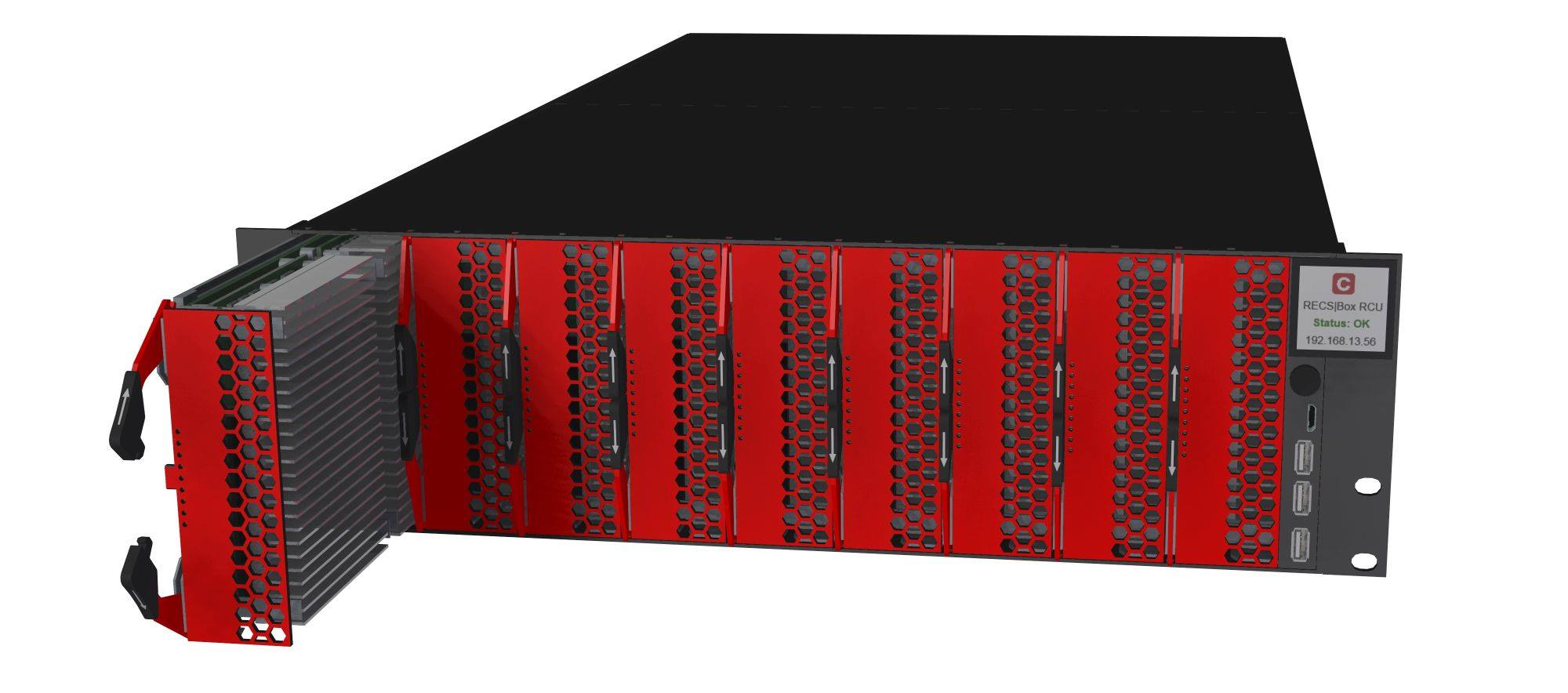CHRISTMANN DEVELOPS HIGH PERFORMANCE TCO-DECLINING APPLIANCES WITHIN M2DC
Feb. 2, 2017, 8:48 a.m.
christmann, by Gunnar Billung-Meyer
For more than a decade, the German IT company christmann informationstechnik has been developing and marketing energy-efficient hardware, as well as engaging in international research projects. christmann informationstechnik + medien GmbH & Co. KG was founded in 2005 in Ilsede, Lower Saxony. The company quickly expanded their focus of IT network services to include other projects, among them the development of a complete RFID server, commissioned on behalf of an industrial customer, using minimal hardware and an energy consumption of merely 10 Watts.
Building on this project experience, Christmann started their own hardware line with the development of TEO (Thin Economic Office), a series of efficient desktop computers in a striking, colourful cubic shape. The centrepiece of this line was the TEO-Server, first introduced at CeBIT 2007. The idea to bring energy efficient hardware such as notebook technology into server architecture was a great innovation at those times.
This caused Christmann’s team of developers and programmers to branch out into different “Green IT”-related projects. More and more products were developed, such as the Resource Efficient Cluster Server (RECS), which was created in cooperation with the University of Paderborn and was the start of a new product line of energy-efficient high performance servers. With the goal to bring future technology further into buyable servers, Christmann is cooperating with innovative business, development, research and university partners in the areas of storage, infrastructure, data center and software development. The RECS®|Box server forms the basis for a variety of international research projects, with participants from all over Europe. Currently, Christmann is working on the EU funded project M2DC (Modular Microserver DataCentre).
Within this project the company is part of a consortium including the Poznan Supercomputing and Networking Center PSNC, ARM Ltd., the French Alternative Energies and Atomic Energy Commission, HUAWEI Technologies Düsseldorf GmbH, the University of Bielefeld, Offis EV, XLAB, Vodafone Automotive, the Polytechnic University of Milan, CEWE Stiftung & Co KgaA, Beyond.pl, Reflex CES and Alliance Services Plus.
The goal of the M2DC project is to develop a new class of low-power TCO-optimised appliances with built-in efficiency and dependability enhancements, easy to integrate with a broad ecosystem of management software and fully software defined to enable optimisation for a variety of future demanding applications in a cost-effective way.
As part of the M2DC-project, the most recent version of the RECS®|Box (version 4.0) is in development, utilising highly energy-efficient microserver technology. It can be equipped with a mixed set of x86- or ARM-based SoC (System on Chip) and SoM (system on module) servers and is able to utilize GPU as well as FPGA (Field Programmable Gate Array) accelerators in a completely integrated chassis. In addition to that, the RECS®|Box 4.0 can be extended with SSD- and/or HDD storage as well as arbitrary PCI-Express cards. This heterogeneous hardware set is bundled with a comprehensive software stack including GPU- and FPGA-based system efficiency enhancements (SEE).
Out of this modular approach, relating hardware as well as software, use case specific and turn-key ready appliances are built. These are optimised to perform defined tasks much faster and more efficiently than ever before and thus lower the TCO extensively. For example, appliances for image processing, internet of things (IoT) data analysis (Big Data), cloud and high performance computing (HPC) are built in order to show the impact on these fast growing business fields.
